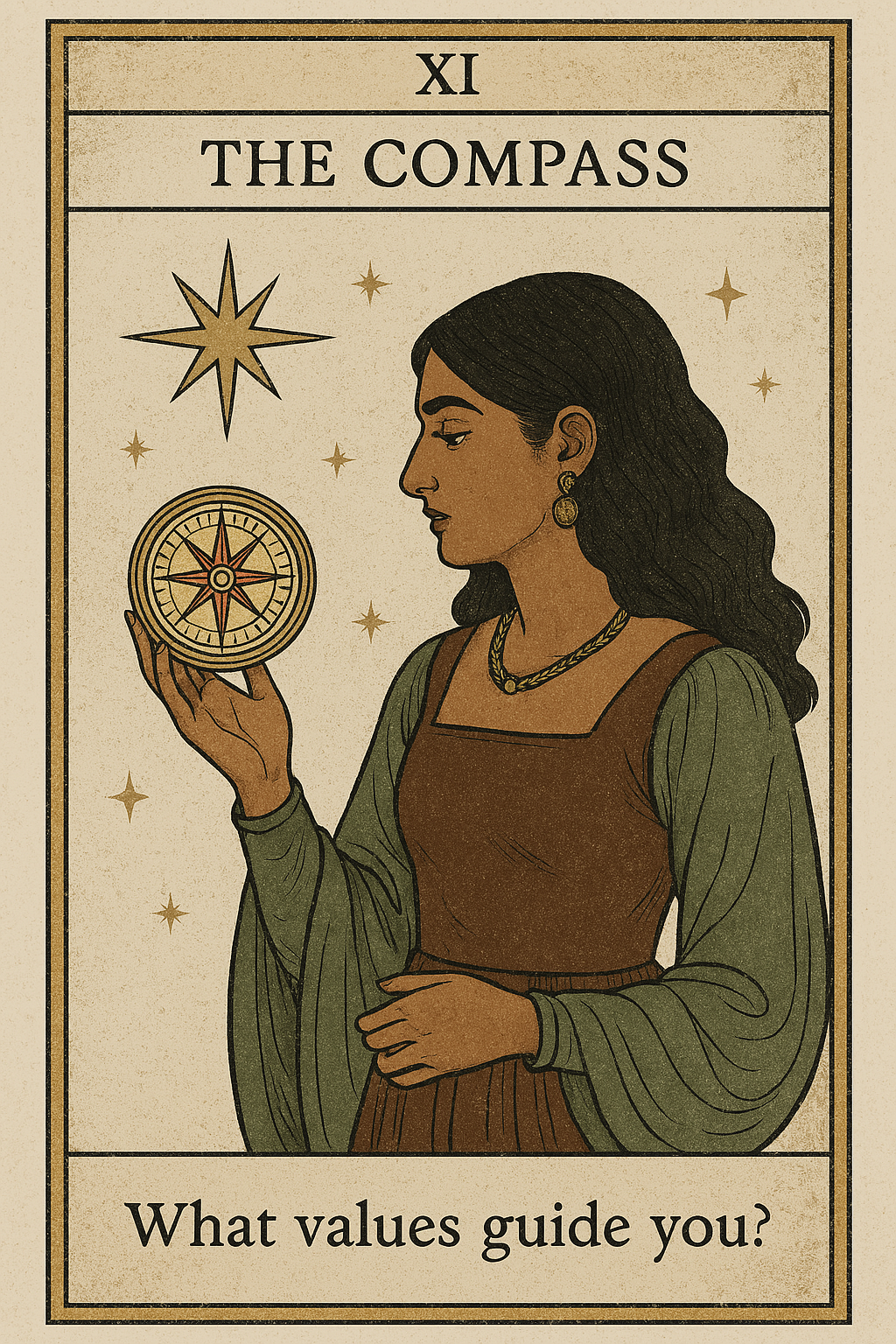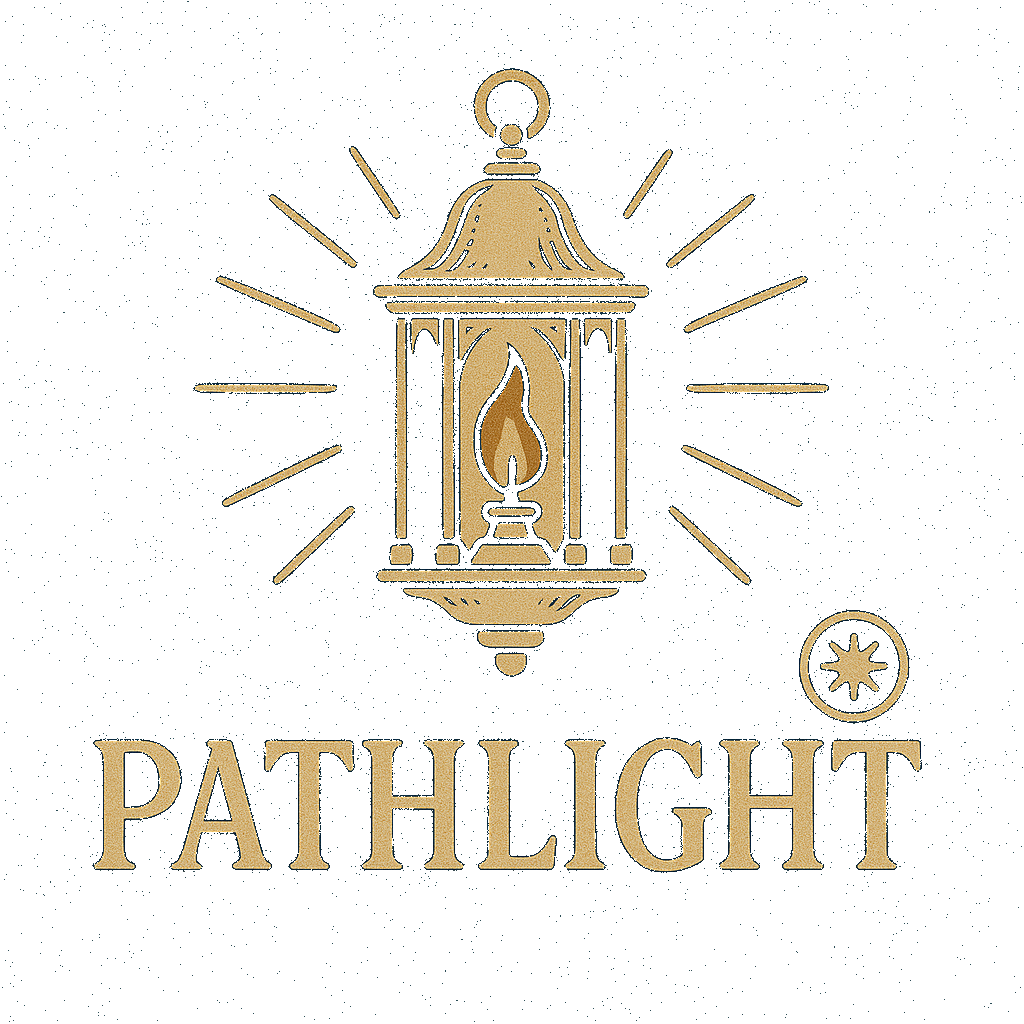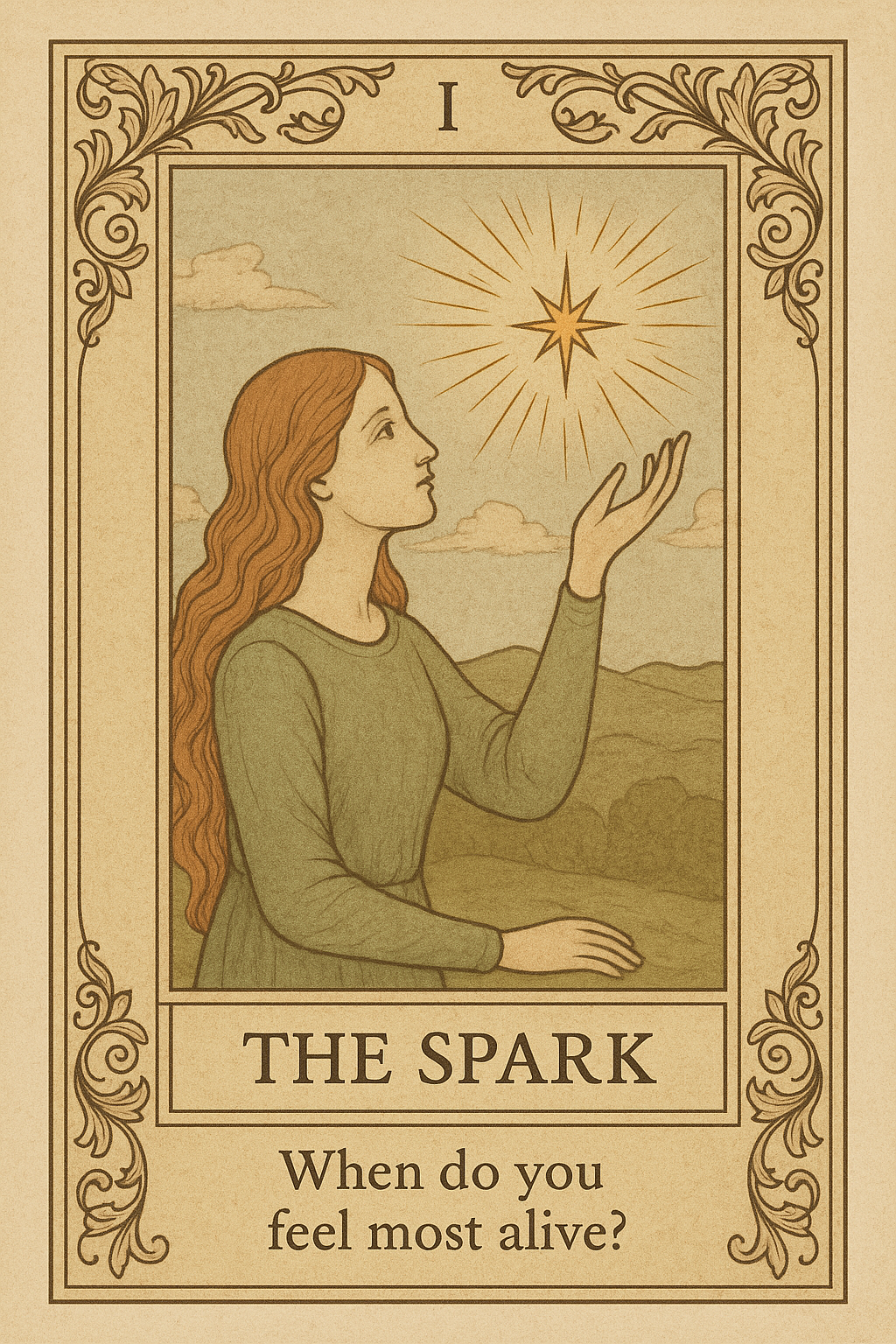
Introduction
Throughout human history, the question "What is my purpose?" has echoed across civilizations, inspiring philosophical inquiry, religious devotion, and personal reflection. This fundamental question transcends cultural boundaries, yet the answers we find are deeply influenced by our philosophical and cultural contexts. From the meditative traditions of the East to the rational frameworks of the West, from ancient religious teachings to modern secular approaches—each tradition offers unique insights into how we might discover and live with purpose.
In this exploration, we'll journey through diverse philosophical landscapes to understand how different traditions conceptualize purpose. Rather than positioning these perspectives as competing alternatives, we'll consider how each offers valuable insights that can enrich our understanding. By the end, you'll have a broader toolkit for reflecting on your own purpose—one that draws from humanity's collective wisdom across time and culture.
Eastern Philosophical Approaches to Purpose
The Holistic View: Purpose as Harmony
Eastern philosophical traditions often approach purpose through a holistic lens, emphasizing harmony, acceptance, and the interconnectedness of all things. Rather than conquering or controlling one's environment, these traditions frequently encourage aligning with the natural flow of existence.
In Taoism, purpose is found in living according to the Tao (the Way)—the natural order of the universe. As Lao Tzu writes in the Tao Te Ching: "The Tao does nothing, yet leaves nothing undone." This paradoxical statement suggests that purpose isn't about striving and achievement but about effortless action (wu-wei) that arises from being in harmony with nature's rhythms.
Hinduism offers the concept of dharma—one's sacred duty or righteous path. Unlike Western notions of purpose that might emphasize personal fulfillment, dharma connects individual purpose to cosmic order. Your dharma is determined by your place in society, your stage of life, and your unique qualities. Fulfilling your dharma contributes to rita, the cosmic order that sustains all existence.
In Buddhism, purpose is intimately connected to addressing suffering (dukkha). The Buddha taught that suffering arises from attachment and craving. Therefore, purpose is found in following the Eightfold Path toward liberation from suffering. This isn't merely about personal peace but extends to compassion for all sentient beings. As the Dalai Lama explains: "Our prime purpose in this life is to help others. And if you can't help them, at least don't hurt them."
Cyclical Time and Purpose
Many Eastern traditions view time as cyclical rather than linear, which profoundly shapes their approach to purpose. In the linear Western view, purpose often involves progress toward goals. In cyclical perspectives, purpose may involve recognizing patterns, accepting natural cycles, and finding one's place within recurring cosmic rhythms.
This cyclical view is evident in the Hindu concept of samsara (the cycle of death and rebirth) and the Buddhist wheel of dharma. Purpose isn't about achieving a final destination but about right understanding and action within endless cycles of existence.
Western Philosophical Approaches to Purpose
The Individual Quest: Purpose as Achievement and Virtue
Western philosophical traditions, particularly since the Enlightenment, have often framed purpose in terms of individual achievement, rational choice, and the development of personal potential. These approaches typically emphasize human agency and the capacity to shape one's destiny.
For Aristotle, purpose was tied to eudaimonia (often translated as "happiness" or "flourishing"). He argued that human purpose is to achieve excellence in rational activity in accordance with virtue. As he wrote in the Nicomachean Ethics: "The function of man is to live a certain kind of life, and this activity implies a rational principle, and the function of a good man is the good and noble performance of these."
Kant approached purpose through the lens of moral duty. He argued that human beings find purpose in acting according to universal moral principles that could apply to all rational beings. For Kant, purpose wasn't about happiness but about fulfilling one's duty as a rational agent capable of moral choice.
In the 19th and 20th centuries, existentialist philosophers like Sartre and Camus suggested that life has no inherent purpose; rather, we must create meaning through our choices and actions. As Sartre famously declared, "Existence precedes essence"—meaning we first exist, then define ourselves through our actions. Purpose becomes a creative act rather than the discovery of a pre-existing plan.
Linear Progress and Purpose
Western traditions often view time as linear, moving from past to future in a progressive sequence. This temporal framework encourages purpose-seeking that involves setting goals, making progress, and working toward future achievements. The Western emphasis on innovation, growth, and development reflects this linear conception of purpose as forward movement.
"The purpose of life is not to be happy. It is to be useful, to be honorable, to be compassionate, to have it make some difference that you have lived and lived well."
― Ralph Waldo Emerson
Purpose in Major World Religions
Divine Plans and Human Response
The major world religions offer frameworks for understanding purpose that typically involve a relationship between divine intention and human response. While philosophical traditions might emphasize discovery or creation of purpose, religious traditions often frame purpose as participation in a divine plan.
In Judaism, purpose centers on the covenant relationship between God and the Jewish people. Individual purpose involves living according to Torah (divine instruction) and participating in tikkun olam (repairing the world). The prophet Micah summarized this purpose: "To act justly and to love mercy and to walk humbly with your God" (Micah 6:8).
Christianity frames human purpose in terms of relationship with God through Christ. The Westminster Shorter Catechism famously states that "man's chief end is to glorify God, and to enjoy him forever." Purpose involves both personal salvation and participation in God's redemptive work in the world, expressed through love of God and neighbor.
In Islam, human purpose is submission (islam) to Allah's will. The Quran states: "I did not create the jinn and mankind except to worship Me" (51:56). This worship extends beyond ritual to encompass all aspects of life lived in accordance with divine guidance, including ethical conduct and service to the community (ummah).
Hinduism presents multiple paths to purpose based on individual temperament: karma yoga (the path of action), bhakti yoga (the path of devotion), jnana yoga (the path of knowledge), and raja yoga (the path of meditation). These diverse approaches accommodate different human tendencies while leading toward the same ultimate goal of liberation (moksha).
Buddhism, while sometimes characterized as non-theistic, offers a clear purpose in the Four Noble Truths and the Eightfold Path. Purpose involves recognizing the nature of suffering, its causes, and the path to its cessation. The ultimate purpose is enlightenment (nirvana), which transcends the cycle of suffering.
Secular Humanism and the Search for Meaning
Purpose Without the Supernatural
Secular humanism offers an approach to purpose that doesn't rely on supernatural or divine frameworks. Instead, it emphasizes human capacity for ethical reasoning, compassion, and meaning-making within a naturalistic worldview.
Secular humanists argue that meaning and purpose are human creations rather than discoveries of pre-existing cosmic plans. As philosopher André Comte-Sponville writes: "We are not born for happiness or for unhappiness, for virtue or for vice, for freedom or for servitude. We are not born for anything: we are born, period. It is up to us to decide what we want to live for."
This perspective doesn't diminish purpose but relocates its source from external authority to human values and choices. Purpose might involve contributing to human flourishing, advancing knowledge, creating beauty, or alleviating suffering—all without reference to supernatural frameworks.
The secular humanist approach emphasizes that purpose can be profound and meaningful even when understood as a human construction. As philosopher Bertrand Russell noted: "The good life is one inspired by love and guided by knowledge." This simple formulation offers a foundation for purpose that requires no supernatural validation.
Synthesizing Diverse Perspectives for Modern Understanding
Finding Common Ground
Despite their differences, these philosophical traditions share common insights about purpose:
- Purpose involves relationship—whether with nature, other people, divine reality, or oneself
- Purpose transcends mere pleasure—all traditions distinguish between momentary happiness and deeper fulfillment
- Purpose requires self-knowledge—understanding one's unique qualities, limitations, and context
- Purpose extends beyond self-interest—connecting individual meaning to broader concerns
- Purpose guides practical action—shaping choices, priorities, and daily conduct
Creating a Personal Philosophy of Purpose
Modern individuals have unprecedented access to diverse philosophical traditions. Rather than choosing one framework exclusively, many people today create synthetic approaches that draw wisdom from multiple sources. This philosophical pluralism allows for a more nuanced and personalized understanding of purpose.
For example, someone might appreciate Eastern emphasis on acceptance and harmony while also valuing Western focus on agency and progress. They might find wisdom in religious frameworks without necessarily adopting all theological claims. This synthetic approach isn't about cherry-picking convenient ideas but about thoughtful integration of insights from different traditions.
The philosopher William James advocated for pragmatism—judging ideas by their practical consequences rather than abstract truth claims. This approach allows us to ask: "What difference would it make to my life if I adopted this understanding of purpose?" This pragmatic question helps us evaluate philosophical frameworks based on how they function in lived experience.
Practical Takeaways: Exploring Your Purpose Through Multiple Lenses
Here are some reflective exercises drawn from different philosophical traditions to help clarify your own sense of purpose:
- From Eastern Traditions: Practice mindful observation of your thoughts and actions. Notice when you feel in harmony with your surroundings and when you feel resistance. What activities create a sense of flow and effortless action (wu-wei)?
- From Western Traditions: Identify your unique excellences—what Aristotle called arete (virtue or excellence). What activities allow you to express your distinctive human capacities at their best?
- From Religious Frameworks: Reflect on your sense of calling or vocation. What work feels like participation in something larger than yourself? What service feels like a response to needs you're uniquely positioned to address?
- From Secular Humanism: Consider what human values you find most compelling. How might your life contribute to human flourishing, knowledge, or the alleviation of suffering?
Remember that purpose isn't static—it evolves as we grow and as our circumstances change. The philosophical traditions we've explored recognize this dynamism, offering frameworks that can adapt to different life stages and situations.
Conclusion
The diversity of philosophical approaches to purpose isn't a problem to solve but a resource to draw upon. Each tradition offers unique insights that can illuminate different aspects of the purpose question. By engaging with this philosophical heritage, we gain a richer vocabulary for articulating our own sense of purpose.
Pathlight's research-backed purpose discovery tool incorporates insights from diverse philosophical traditions, helping you articulate a purpose statement that resonates with your unique values, strengths, and circumstances. Whether you're drawn to Eastern wisdom, Western rationality, religious frameworks, or secular approaches, Pathlight can help you translate philosophical insights into practical guidance for your purpose journey.
As you continue exploring these diverse perspectives, remember that the ultimate test of any philosophy of purpose is how it functions in lived experience—how it helps you navigate challenges, make decisions, and create a life of meaning and contribution. The wisdom of these traditions becomes most valuable when embodied in a life well-lived.

